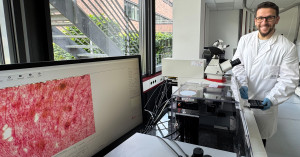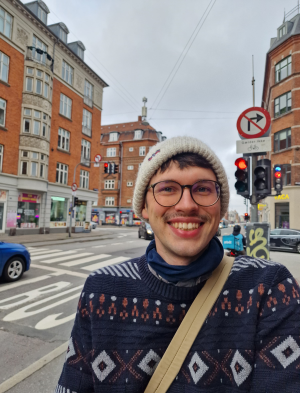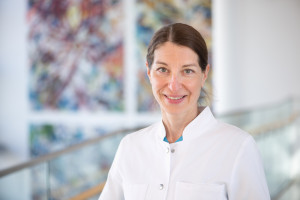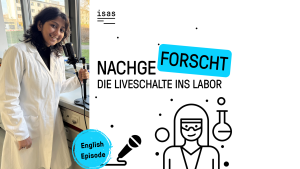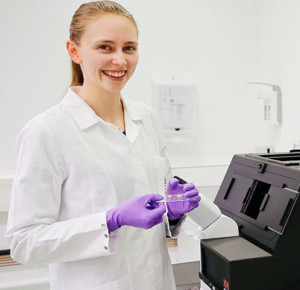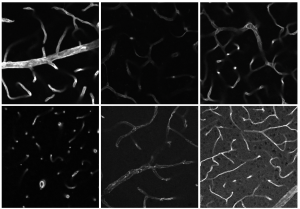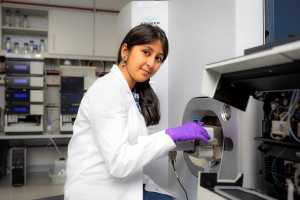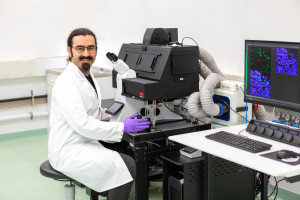Dortmund, 20th September 2024
Why do we need animal experiments and how can we reduce them? What role does the immune system play in a heart attack? And how does one even become a researcher? Answers to these questions and many more await those interested in science at the "Book a Scientist" event on 15 October 2024, where two ISAS researchers and many other scientists from the Leibniz Association will provide answers to anyone who is curious in virtual one-on-one discussions. Both young people and adults can take part. School groups can also participate.
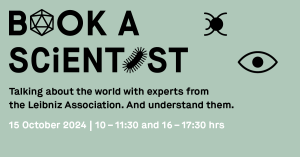
"Book a Scientist" is an annual dialogue format of the Leibniz Association. Based on the speed dating principle, interested participants meet Leibniz scientists in 25-minute video calls and ask them what has always interested them about a particular topic. The researchers will be available for brief discussions between 10 and 11.30 am and 4 and 5.30 pm. Whether laypeople or researchers from other disciplines - the format is explicitly aimed at anyone interested in science. The more than 130 topics can be booked via the Leibniz Association (see below).
Two ISAS researchers are taking part this year:
"Why does our immune system overreact after a heart attack - and what does this mean for patients?"
Prof Dr Anika Grüneboom is a biologist who focuses her research at ISAS on the communication of immune cells. She is focussing on two particular cell types, neutrophil granulocytes and macrophages. In order to gain a deep insight into unknown processes in the immune system after a heart attack, the immunologist uses various microscopes to study the behaviour of neutrophils and macrophages in the hearts of mice. Her aim is to use the knowledge gained to identify molecular targets for drugs - and thus pave the way for new heart attack therapies. In addition to animal tissue, Grüneboom's research primarily utilises alternative methods such as cell cultures and patient samples.
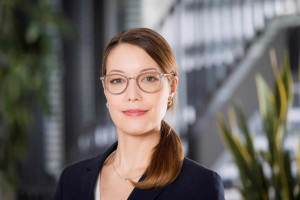
Prof Dr Anika Grüneboom is head of the Bioimaging research group and coordinator of the 3D Molecular Pathology research programme at ISAS. The 37-year-old holds the professorship for Experimental Biomedical Imaging at the University of Duisburg-Essen since 2020. Grüneboom is passionate about speaking about her research - whether in front of young people or an expert audience.
© ISAS / Hannes Woidich
"Animal testing - why do we need it and how can we reduce it?"
Prof Dr Matthias Gunzer is a biologist and conducts fundamental research at ISAS and Essen University Hospital. He investigates human and murine (mice) immune cells, more precisely: neutrophil granulocytes. His aim is to elucidate previously poorly understood immunological relationships in the human body. To this end, Gunzer and his team are developing animal models and microscopy tools for analysing neutrophils. They are using these tools to investigate the movement behaviour of neutrophils during tumour therapy, for example. Gunzer works with animal experiments and alternative methods such as cell cultures. But why can't immunologists investigate cancer metastases or strokes in a petri dish? For which medical questions in humans are mice indispensable? How can the number of laboratory animals be reduced? Gunzer provides the answers to these questions in Book a Scientist.
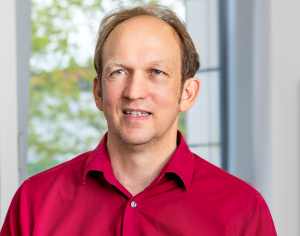
Prof Dr Matthias Gunzer heads the Biospectroscopy Department and the Biofluorescence Research Group at ISAS. He is the director of the Institute for Experimental Immunology and Imaging at the University Hospital Duisburg-Essen. Gunzer has held a professorship at the University of Duisburg-Essen since 2011. The immunologist is an enthusiastic science communicator.
© ISAS / Hannes Woidich
